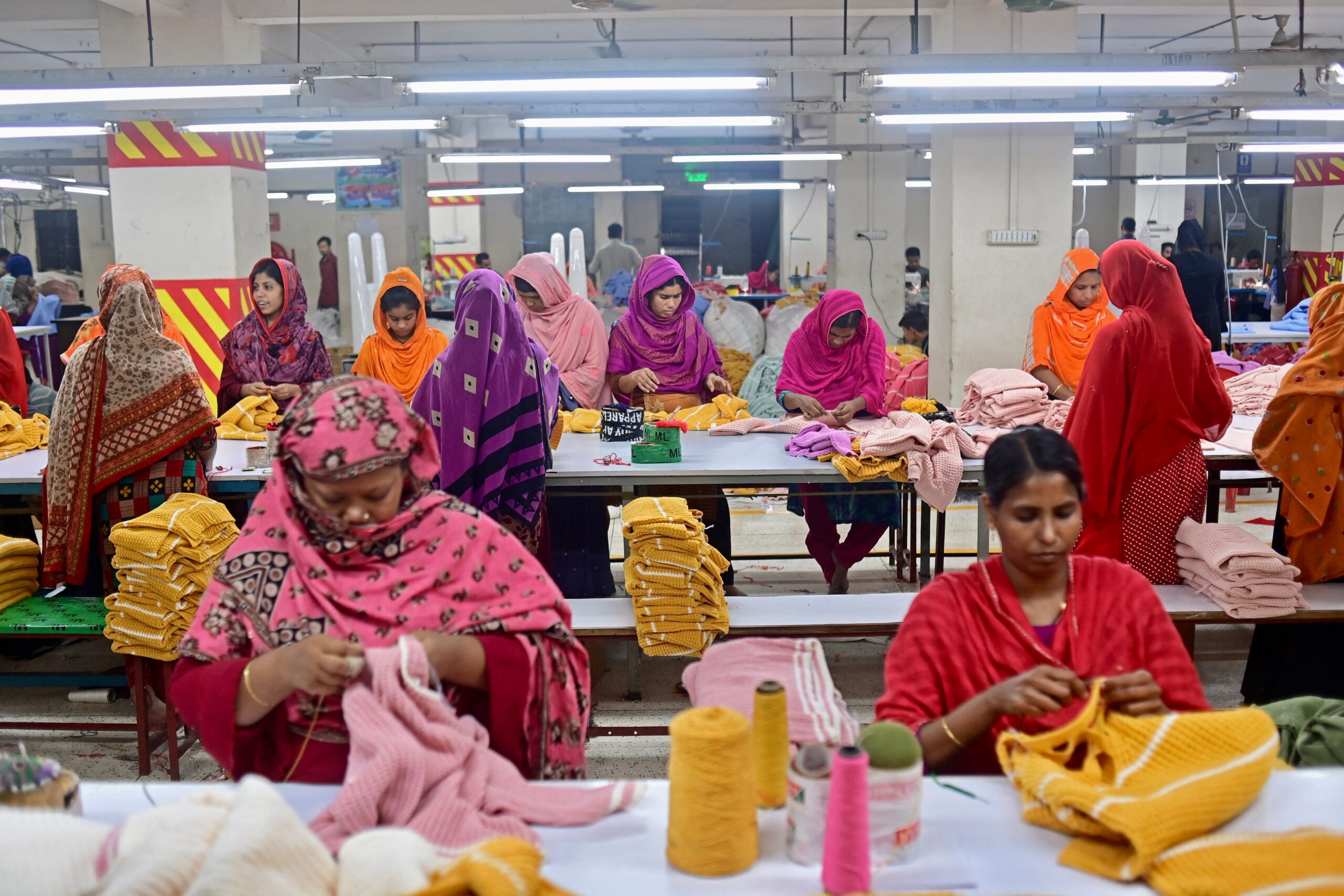- Saturday, April 27, 2024
The government agreed in November to raise minimum wages by more than 56 per cent to 12,500 taka (£90) a month, which many garment workers have still called too low

By: Eastern Eye
BANGLADESH garment factories have fired hundreds of workers since protests in October demanding higher wages, three labour unions representing half a million workers said last week.
Clashes during the protests, which ran alongside wider antigovernment demonstrations by the opposition ahead of Sunday’s (7) general election, killed four workers and injured dozens of others.
The police filed cases against hundreds of unidentified people for vandalism. Many are said to be on the run, fearing arrest.
The government agreed in November to raise minimum wages by more than 56 per cent to 12,500 taka (£90) a month, which many workers have still called too low.
Bangladesh has become the world’s second-biggest garment exporter after China, partly thanks to low wages. The garment industry has been the key driver of economic growth in Bangladesh as it has overtaken India in GDP per capita.
But experts say the industry has failed to lift its four million workers out of poverty.
The three unions – Bangladesh Garments and Industrial Workers Federation, National Garment Workers Federation and Bangladesh Garments Workers Unity Council – estimated 1,000 to 5,000 workers had either been fired in the last two months of 2023 or had gone into hiding.
“We took to the streets for our legitimate demands and that’s why my factory fired me,” said garment worker Naim Pramanik. He gained attention after his comments to a news website during protests were shared widely on social media.
“Some clothes we make are sold at £79 a piece in shops in America and Europe,” the 28-year-old sacked worker said, showing the labels of American fashion giant Tommy Hilfiger and British brand George.
“We don’t make more than £79 in a month.”
Pramanik joined protests last month because his £59 monthly salary was “killing us”.
Sitting on the bed in his celllike, 4.5-sq metre (48-square[1]foot) home in the Pallabi suburb of Dhaka, which he shares with his wife and baby, Pramanik pulled out a nearly empty pot of rice. “These are the last few rice grains I have got. Once this finishes, I won’t have anything to eat,” he said.
“I’ll have to either beg or borrow to provide food.”
He received a 67,000-taka (£483) severance package, but debts swallowed much of that, and he does not know how he will pay his next rent demand.
But Faruque Hassan, president of the Bangladesh Garment Manufacturers and Exporters Association, said he was not aware of any retrenchments. The industry body would act if “any such incidents are brought to our notice”, he said.
Bangladesh’s Ministry of Labour did not respond to a request for comment.
Momanul Islam, a senior police official in Ashila, a garment hub, said police had not arrested any garment workers for joining the protests.
Bangladesh’s more than 4,000 garment factories rely on some four million workers to supply major Western brands.
In October, brands including Abercrombie & Fitch, Adidas, GAP, Levi Strauss, Puma and Under Armour urged the government to ensure there was no retaliation against workers seeking fair wages.
Delowar Hossin, a garment worker with Ducati Apparels, said he was fired in December without any explanation or payment of severance dues.
“I was just blocked from entering the factory,” said Hossin, who now works part-time as a mason.
Ducati’s managing director, Khayer Mia, said some 15 to 20 workers had vandalised the factory during the protests, but said that no workers had been sacked. He said Ducati paid full salaries to all workers, even though the protests had shut the factory for 10 days.
“I love my workers like my family,” he said. (Agencies)
![]()